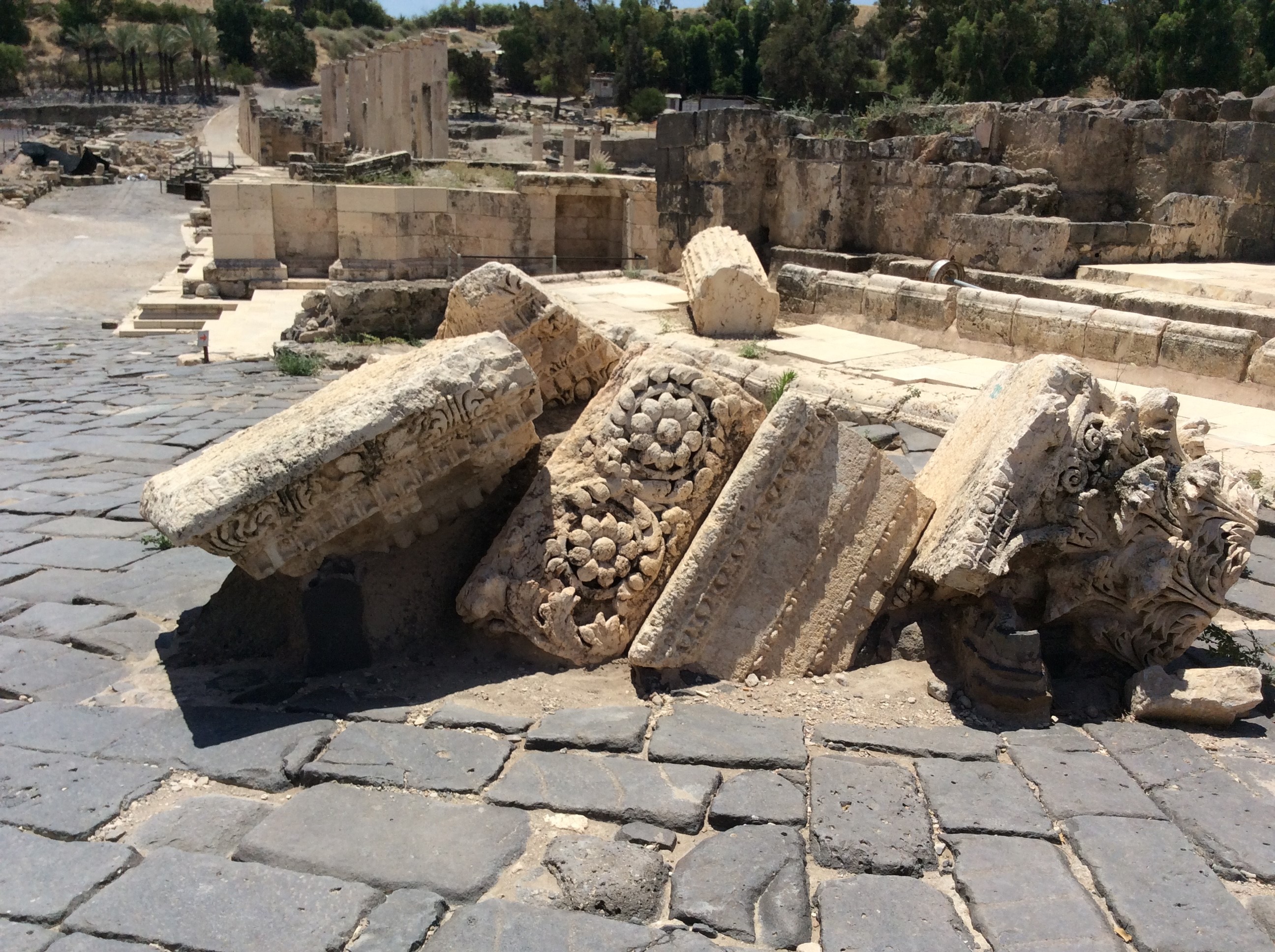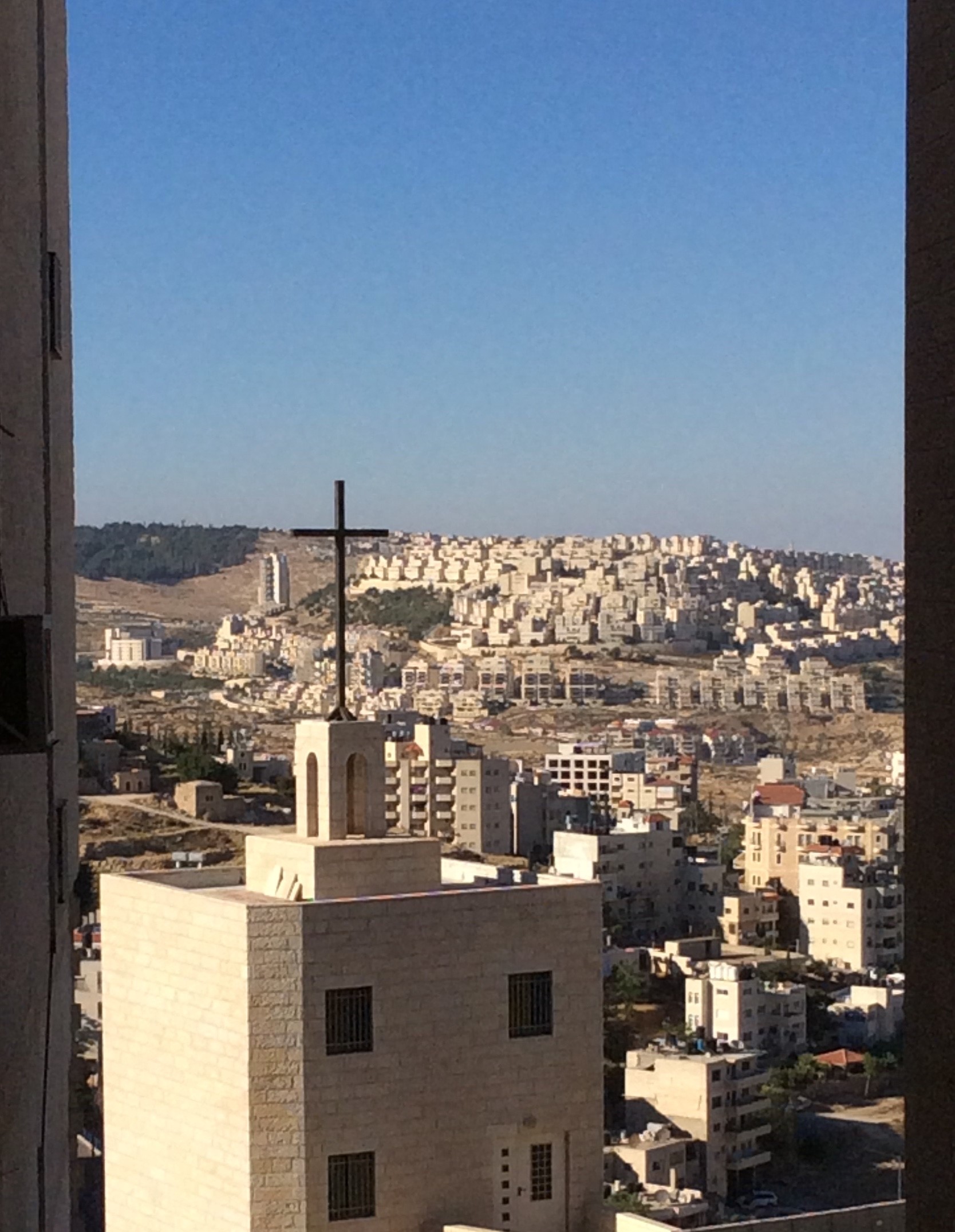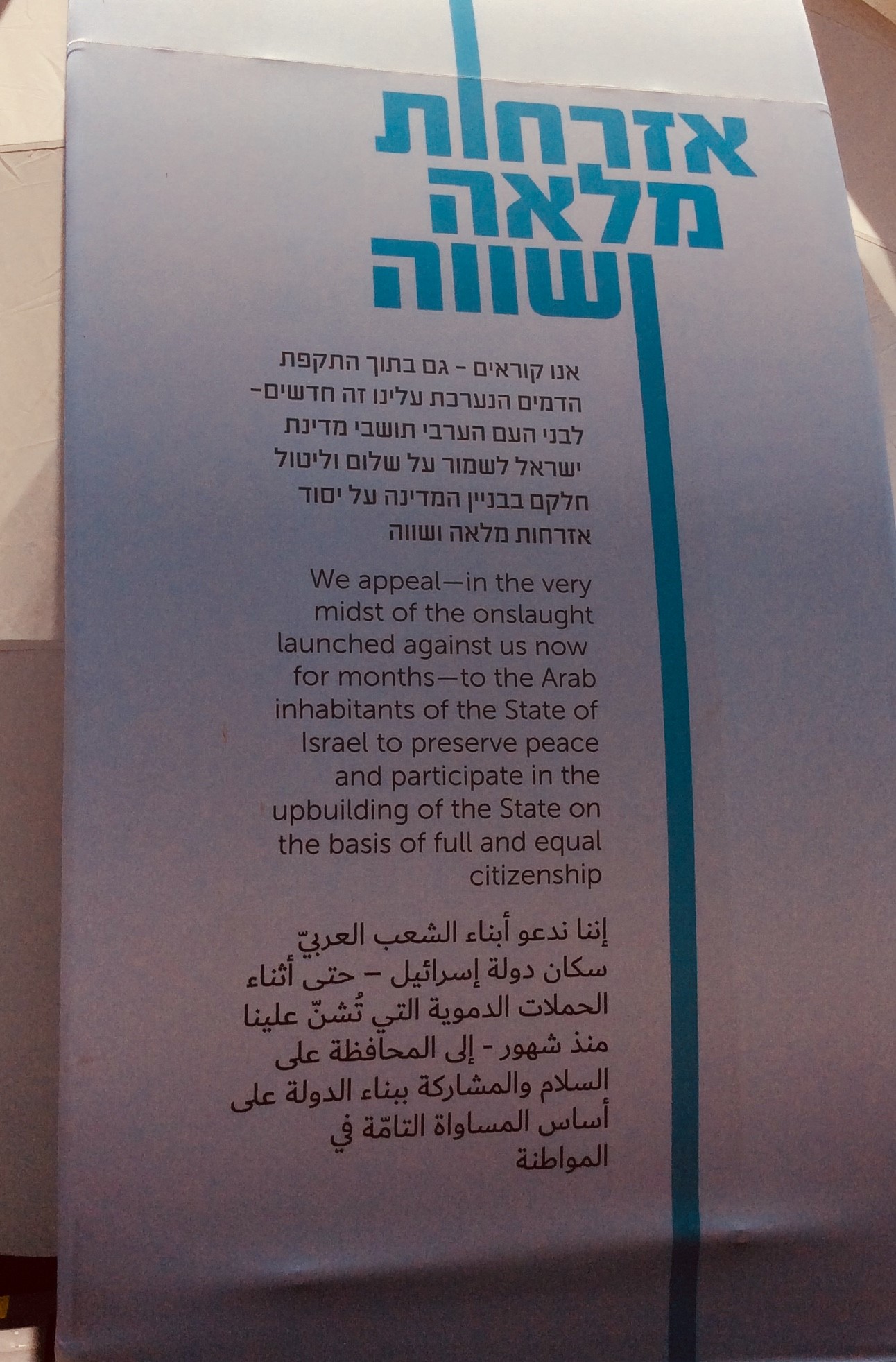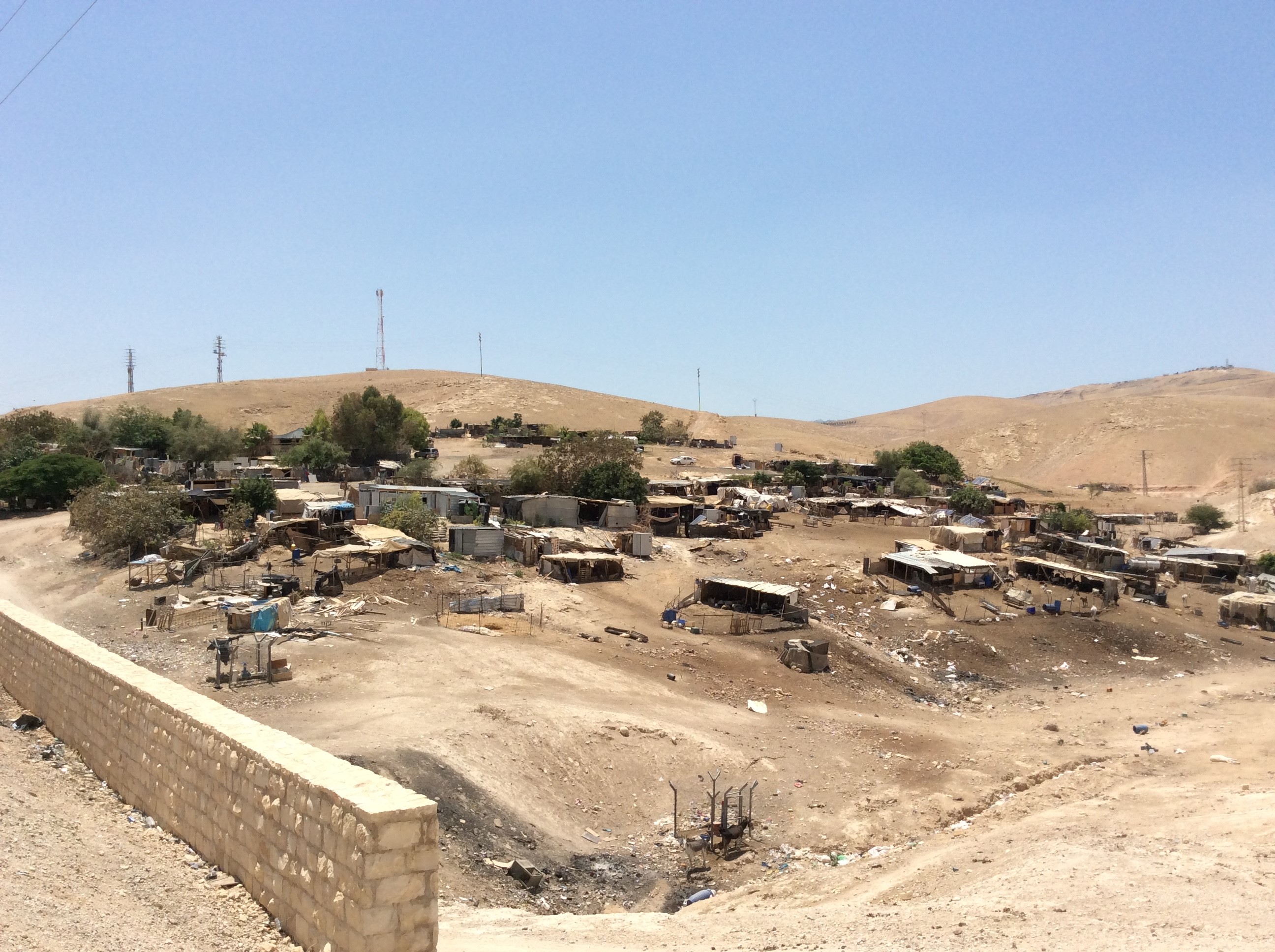A Letter from Doug Dicks, serving in Israel and Palestine
October 2018
Write to Doug Dicks
Individuals: Give online to E200516 for Doug Dicks’ sending and support
Congregations: Give to D506222 for Doug Dicks’ sending and support
Churches are asked to send donations through your congregation’s normal receiving site (this is usually your presbytery)
Dear Family and Friends,
Earthquakes are events of nature that strike without warning, and can cause considerable damage and harm.
In July, the Galilee region of Israel experienced over a dozen small earthquakes, seismic activity that caused tremors and some limited damage in the region, particularly around Tiberias, on the Sea of Galilee.
In 749 A.D., a major earthquake, whose epicenter was in Galilee and centered in the area known as the Jordan Rift Valley, toppled significant city-states of the Decapolis and caused widespread death and destruction. It is said that every 100 years or so, this part of the world is prone to a major quake, and rumor has it that the next big quake is long overdue and could strike the region within the next 7–10 years.
But the earthquake — if you can call it that — that struck Israel on July 19, 2018 knocked more than just a few people off their feet! The damage is still being tallied, and the recovery assessment still being discussed.
I am speaking, of course, about Israel’s Nation-State Bill, which was passed by the Knesset on Thursday, July 19. Though not a unanimous vote by any means, the Knesset managed to get the bill through by a vote of 62 in favor, 55 opposed, and 2 abstentions.
The bill, now made into law, is seismic in and of itself. However, with other altercations taking place throughout the country — such as the planned expulsion of the Bedouin community of Khan Al Ahmar on the road leading down to Jericho and the imminent demolition of their tiny enclave — coupled with the ongoing assault on and siege of Gaza, the Palestinian community has been left feeling more vulnerable than ever before. Palestinian Bedouins, the majority of whom are refugees from the Negev region of Southern Israel, number more than 30,000 in 183 residential communities in Area C of the West Bank.
In addition to calling Israel a “State of the Jewish people,” the Nation-State Bill
1. declares that Hebrew is the language of the state, and downgrades the Arabic language from the official second language of the country to one of “special status,”
2. calls Jerusalem the “unified and complete capital of the Jewish people,” and
3. calls Israeli settlements in the West Bank worthy of “national value.” It doesn’t specify whether those settlements in East Jerusalem are given the same status.
Considering that at least 20 percent of the population of Israel is not Jewish, what does this new law say to them about their citizenship and participation in Israeli society?
As for Israeli settlements in the West Bank, they are considered illegal under international law and the Fourth Geneva Convention, although Israel disputes this. Article 4, Paragraph 6 of the Fourth Geneva Convention states than an occupying power may not deport its own civilian population into an area that is under military occupation in order to change the demographics, or create “facts on the ground.” More than 600,000 Israeli Jews now live in about 140 settlements built since Israel’s 1967 occupation of the West Bank and East Jerusalem — land the Palestinians claim for a future state.
In addition, there are some 100 outposts, small settlements built without the Israeli government’s authorization, throughout the West Bank.
The Latin Patriarchate of Jerusalem has condemned the Nation-State Bill, saying that it is a cause of great concern and that it is inconceivable that a law with constitutional effect ignores an entire segment of the population as if members never existed.
The statement from the Latin Patriarchate goes on to say that “the Christian citizens of Israel have the same concerns as any other non-Jewish communities with respect to this law.”
The Bishop of the Evangelical Lutheran Church of Jordan and the Holy Land, a partner church of the Presbyterian Church (U.S.A.), stated that this new law ignores the presence of citizens and residents who are members of other religious groups and the significant contributions they make to Israeli society. Despite the great diversity in Israeli society, this law shows preference to one culture or ethnic group over all others.
On Saturday evening, August 4, tens of thousands of protesters, many waving Palestinian flags, gathered in Tel Aviv to protest the controversial Nation-State Law. Many were from the Druze community in Northern Israel, Arabic-speaking believers from an 11th Century offshoot of Ismaili Shiite theology who are citizens of Israel and serve in the Israel Defense Forces.
In an unprecedented demonstration at Tel Aviv’s Rabin Square led by the Druze community, that Saturday night tens of thousands of people chanted, “We want equality!” in protest of the Nation-State Law.
Sheik Mowafaq Tarif, the spiritual leader of the Druze community in Israel, told the gathering, “All our lives we have been proud of the enlightened, democratic and free State of Israel in which human dignity and freedom are a supreme value and a cornerstone of its strong foundations. We have never protested the Jewish identity of the state.” He went on to say, “Nobody can teach us what sacrifice is, and no one can teach us about loyalty … the military graveyards and the hundreds of fallen soldiers are testimony to that. Despite our loyalty, the state did not see us as equals. We identify with the Declaration of Independence, and last Independence Day I was moved to light a torch” (“The Jerusalem Post,” August 4, 2018).
Finally, Israel’s Justice Minister has warned of “an earthquake” if the top court were to kill the Nation-State Law. Israel’s High Court has never been conclusive on whether it has the authority to overrule a Basic Law. And since Israel does not have a constitution, rather a series of Basic Laws that serve as the constitutional laws of the State of Israel, this could well be the litmus test. Only a supermajority vote in Israel’s Knesset can overturn or change a Basic Law.
So, while the “big one” may be imminent, there has been enough trembling going on this summer to shake up — and wake up — everyone who is concerned that these changes within Israeli society will do more harm than good. In the words of the Lutheran Bishop of Jerusalem, the new law is “fundamentally divisive, racist, and destructive. … For many years, Israeli leaders have protested when the word ‘apartheid’ has been used to describe the situation in this land. The adoption of this law, however, makes it difficult to argue against this situation having been codified into law. Declaring that Israel is no longer ‘home’ for non-Jews, or for those citizens representing Arab culture, has officially created a subclass of people in the nation.”
Please pray for the vulnerable communities in Israel and in Palestine. Pray that sound minds and reason will prevail. Pray for the leaders and those who govern and make decisions, that they might rethink actions and proclamations that divide, rather than unite, people. Please keep in mind that it is within this very difficult context that our Palestinian Christian friends, partners and brethren continue to strive to live, work and witness to the Living Christ.
Thank you all for your continued and faithful prayers, correspondence and financial support. All are much appreciated, and most needed.
Blessings,
Doug
Please read this important message from José Luis Casal, Director, Presbyterian World Mission
Dear partners in God’s mission,
We near the close of 2018 inspired by the hope of Christ. God is transforming the world, and you are helping to make it happen.
Thank you very much for your support of our mission co-workers. The prayers and financial gifts of people like you enable them to work alongside global partners to address poverty, hopelessness, violence and other pressing problems in the name of Jesus Christ.
Every day, Presbyterian Church (U.S.A.) mission co-workers are blessed to be able to walk alongside their brothers and sisters across the globe. Listening to each other in faith and in friendship, they learn from each other how to work towards a world in which everyone flourishes. Acting upon what they discover together, PC(USA) mission co-workers and our global partners strengthen the body of Christ.
Because you are an integral part of God’s mission, I invite you to become more deeply committed to Presbyterian World Mission. First, would you make a year-end gift for the sending and support of our mission co-workers? The needs in the world are great, and World Mission is poised to answer God’s call to serve others.
I also invite you to ask your session to add our mission co-workers to your congregation’s prayer list and mission budget for 2019 and beyond. Your multi-year commitment will make a great difference in our involvement with our partners. The majority of our mission co-workers’ funding comes from the special gifts of individuals and congregations like yours, for God’s mission is a responsibility of the whole church, not a particular area of the church. Now more than ever, we need your financial support!
In faith, our mission co-workers accept a call to mission service. In faith, World Mission, representing the whole church and you, sends them to work with our global partners. In faith, will you also commit to support this work with your prayers and financial gifts? With hope and faith, I await your positive response!
At God’s service and at your service!
José Luis Casal
Director
P.S. Your gift will help meet critical needs of our global partners. Thank you!
![]() You may freely reuse and distribute this article in its entirety for non-commercial purposes in any medium. Please include author attribution, photography credits, and a link to the original article. This work is licensed under a Creative Commons Attribution-NonCommercial-NoDeratives 4.0 International License.
You may freely reuse and distribute this article in its entirety for non-commercial purposes in any medium. Please include author attribution, photography credits, and a link to the original article. This work is licensed under a Creative Commons Attribution-NonCommercial-NoDeratives 4.0 International License.




